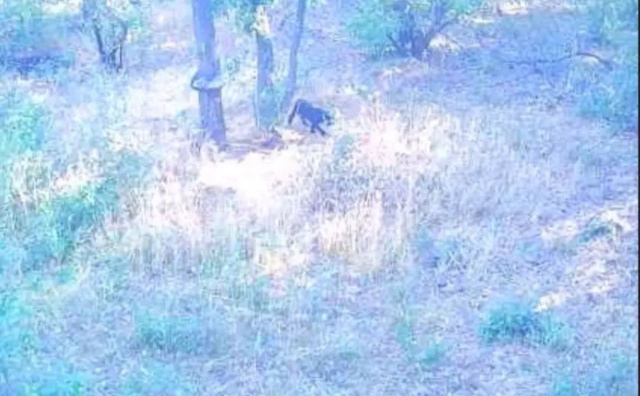Authorities in Shumen have received a fresh alert regarding the black panther believed to be roaming the area around the Shumen Plateau Nature Park. The predator was reportedly captured on several camera traps near a village located about 20 kilometers from the city of Shumen. Additionally, two young men claimed to have encountered the animal in person in the early hours of the morning.
The panther was spotted around 2:50 a.m. near the “Creators of the Bulgarian State” monument, specifically at the foot of the steps close to the area known as “Chupkata.” The two eyewitnesses described their contact as close and said they felt genuinely threatened by the animal’s presence. Their report was submitted to the Regional Directorate of the Ministry of Interior in Shumen, prompting officials to once again urge caution.
As a result, institutions involved in managing public safety have reiterated their appeal to residents and visitors to avoid the Shumen Plateau Nature Park during nighttime hours. The area has now been deemed hazardous after repeated indications that the big cat is still active in the region. Officials confirmed that relevant ministries will be informed of the renewed sightings, and promised to update the public should any further confirmed information be received.
The black panther’s presence has turned into an ongoing concern. The animal has been at the center of a string of warnings and sightings in recent months, and there is growing evidence to suggest that it has settled in the Shumen Plateau area.
Speaking to national media, Dr. Ivaylo Stankov, director of the Lovech Zoo, weighed in on the developments. According to him, the black panther is likely staying in the area because it has found sufficient conditions to survive – food sources, water, and adequate shelter. He speculated that human interference may have initially pushed the animal to seek a new habitat, and it has since established a familiar territory on the plateau.
Stankov estimated that the panther is likely older than two or three years. While it’s difficult to determine the exact age without direct observation, he noted that such big cats live up to 15-16 years in captivity and around 13-14 years in the wild. The repeated return of the animal to the same area further indicates, in his view, that it has been roaming free for quite some time.
The zoo director also issued advice for anyone who might unexpectedly cross paths with the predator. He warned that turning one’s back could provoke an attack, as panthers often stalk their prey when they sense vulnerability or threat. The best course of action, he said, is to retreat slowly while keeping the animal in view. As for capturing the panther, Stankov emphasized that only live bait would realistically work.

